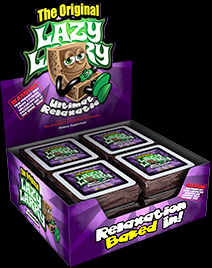Most health-conscious consumers routinely avoid additive-laden foods. But are they missing hidden dangers by accepting “natural” additives at face value?
The Food and Drug Administration might say so. Earlier this week, the FDA issued a strong warning to HBB LLC, the manufacturers of “Lazy Larry” brownies, a product laced with melatonin and marketed through convenience stores and the company’s website. The FDA says it can seize the brownies if the company continues to manufacture and sell them.
Melatonin is a hormone that, while “natural,” affects the sleep-wake cycle and can make consumers sleepy. According to the FDA the addition of melatonin makes the brownies unsafe. Included on the packaging is a warning against driving or operating heavy machinery after consumption.
Although melatonin is fairly unregulated as an over-the-counter supplement, the FDA suggests that consumers, especially children, pregnant or breastfeeding women, and those with autoimmune diseases should consult their doctor before eating melatonin-laced foods. Some medical research suggests that use of melatonin could result in reproductive, cardiovascular, ocular and neurological issues.
The branding and marketing of the product is equally suspect. HBB is marketing the product as a supplement, and says they should be regulated similarly to melatonin sold in pill form. A cartoonish character adorns the packaging, and the website copy includes several comparisons to marijuana and marijuana-like effects of the product. Others are concerned that the chocolaty taste might encourage consumers to eat more than the recommended quantity.
Natural and Safe?
Other natural additives are found throughout the grocery store, from the produce aisle to the baked goods and dairy section. Annatto is a natural food coloring sourced from the seeds of a tropical shrub. Used to color cheese, butter and other products, it causes hives in some people.
Even Stevia, which has been enthusiastically embraced as a naturally derived, non-caloric, high-potency sweetener, has its dark side.
Stevia is 100 times sweeter than sugar, and is used as a tabletop sweetener and as an additive to diet beverages. It is derived from the yerba dulce shrub that grows in parts of South America and Southeast Asia. Lab results on rats and hamsters who were fed high dosages of Stevia produced enough concern that it was rejected as a food additive by the U.S., Canada and Europe as recently as the 1990s.
Some lab results pointed to potential infertility issues, while others suggested potential cancer risks. A newer extract of Stevia, nicknamed rebiana, however, was approved by the FDA to be considered “generally recognized as safe,” or GRAS in 2026. Rebiana is branded as Truvia and PureVia.
Health-conscious consumers are becoming much more savvy to the loopholes in food labeling regulations. Labels such as “all natural” and even “organic” are drawing scrutiny from informed consumers who realize that processed foods could contain any number of “natural” but potentially harmful additives.

